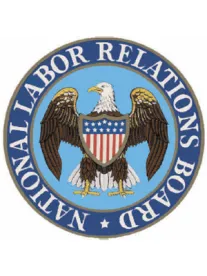The National Labor Relations Board General Counsel’s Division of Operations Management has issued a sweeping Memorandum to Regional Offices setting forth a variety of circumstances under which those offices should process “currently active [representation] cases” applying the NLRB’s recent decision (PCC Structurals, Inc.) that overruled Specialty Healthcare. “Currently active cases” is defined very broadly – it includes almost all representation cases (open RC, RM and UC cases). The only exceptions are for cases presently before the Board on appeal (“request for review”) and “where the employees do not comprise a conforming unit in the context of an acute care hospital.” Memorandum OM 18-05 (December 22, 2017).
The Memorandum, entitled “Representation Case Procedures in Light of PCC Structurals, Inc., 365 NLRB No. 160 (2017),” gives parties to representation cases an extensive opportunity to relitigate directed bargaining unit determinations (bargaining unit determinations made by the Regional Director) that were made under the Specialty Healthcare standard and even to withdraw from election agreements (stipulated or consent). Regional Directors are reminded that they have discretion to entertain requests to revisit a unit determination, by way of approval of a request to withdraw from an election agreement upon an “affirmative showing of unusual circumstances,” reopening the record after close of a pre-election hearing or after issuance of a decision and direction of election upon a showing of “extraordinary circumstances,” and treating a request for review as a motion for reconsideration of his or her pre-election decision. According to the Memorandum, the change in the law in PCC constitutes such an “unusual” or “extraordinary” change in circumstances as to warrant reconsideration.
Regions are instructed “to consistently apply the Board’s new analysis at all stages of case processing in currently active cases and to utilize the practices set forth in the memorandum in all active cases.” Regional Directors are instructed to “routinely entertain a party’s request to introduce evidence relevant to a PCC analysis in a currently active case . . .” Such a request can take many forms, including a motion after opening of a hearing or issuance of a decision and direction of election, or pursuant to a request by letter after entering into a stipulated or consent election agreement, even if an election has already been held.
The Memorandum is so broad that even where no party has sought reconsideration of an election agreement or unit determination in a currently active case, Regions are instructed to issue a Notice to Show Cause directing any party to the case to show cause, with specifics, as to why the stipulated or directed bargaining unit is inappropriate pursuant to the analysis set forth in PCC. (The show cause notice will require a party to affirmatively identify with significant specificity those community of interest factors a party is relying upon to show that the directed unit is not sufficiently distinct from another employee group such that it should be rendered inappropriate.)
The Memorandum also takes on several of the short time frames engendered by the April, 2015 “quickie election rule.” First, Regional Directors are given discretion to set hearings beyond the eighth day after service of the Notice of Hearing in matters involving, among other things, “substantial community of interest issues.” In fact, the Memorandum appears to assume that additional time will need to be granted because “[u]nder the community-of-interest standard set forth in PCC, a fact intensive analysis is required . . .” Second, the Memorandum notes that they have discretion to postpone hearings and the due date for the Statement of Position for up to two days upon the showing of special circumstances and for more than two business days upon the showing of extraordinary circumstances. Finally, and perhaps most important, the Memorandum also reminds Regional Directors that election dates are supposed to be set based on the circumstances of each case, and that the “substantial change in the law such as that in PCC is a circumstance where additional time may be required to set an election date.”
This Memorandum gives employers a broad opportunity to ask the Regional Director to revisit a directed bargaining unit determination or to request withdrawal from a stipulated or consent election agreement, even if an election has been held. It represents a unique opportunity for a possible “second bite of the apple” and an chance to perhaps transform all or part of your unionized organization to union-free.






 />i
/>i

